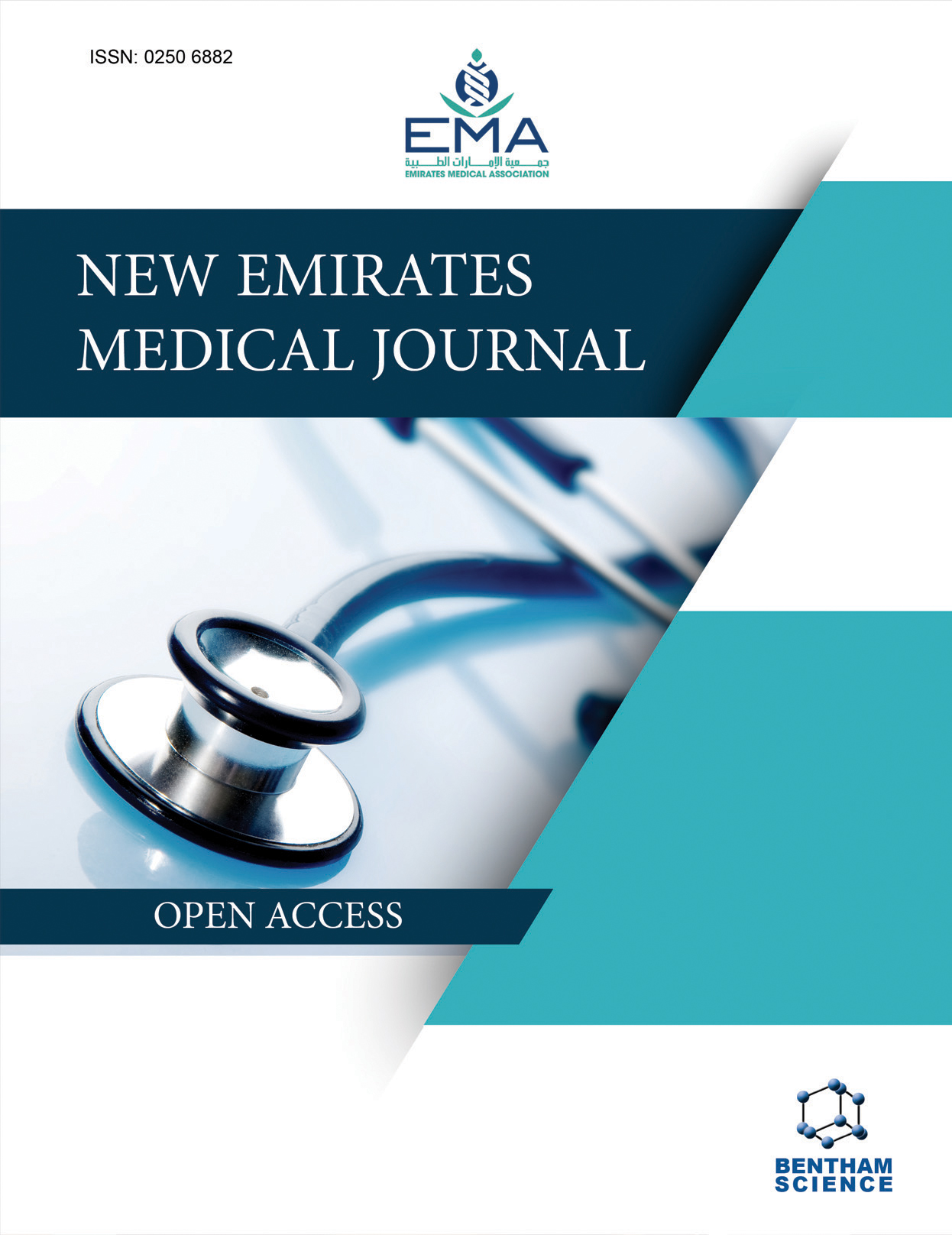-
oa Pyruvate Dehydrogenase E3 Deficiency - Heterozygous Mutation in Dihydrolipoamide Dehydrogenase (DLD) Gene Associated with Symptomatic Hypoglycaemia. A Case Report
- Source: New Emirates Medical Journal, Volume 4, Issue 2, Sep 2023, e220323214862
-
- 20 Jun 2022
- 08 Feb 2023
- 13 Jun 2023
Abstract
Pyruvate dehydrogenase complex deficiency (PDCD) is a mitochondrial disorder that presents with lactic acidemia and neurological manifestations. It is a very rare genetic disorder, a potentially life-threatening one with the usual presentation of hypotonia, lethargy, and developmental delay. It is commonly associated with structural brain abnormalities. We report a very rare case of transient severe symptomatic hypoglycaemia probably due to pyruvate dehydrogenase E3 deficiency; a component of pyruvate dehydrogenase complex (PDC).
Our patient is a 12-day-old neonate presenting with lethargy, vomiting with severe symptomatic hypoglycaemia; a critical sample suggestive of hyperinsulinism and raised lactate levels. A TMS-GCMS for metabolic abnormality screening was normal, however, a whole genome sequencing (nuclear + mitochondrial) revealed heterozygous missense variants (c.763A>C) in exon 9 of the DLD gene that results in the amino acid substitution from Methionine to Leucine at codon 255 (p.Met255Leu) and another heterozygous mutation of heterozygous missense variant (c.5277A>T) in exon 34 of the LAMB1 gene that results in the amino acid substitution from Glutamine to Histidine at codon 1759 (p.Gln1759His).
There is no effective treatment for PDCD but reports of treatment with supplements like thiamine, biotin, and coenzyme Q may play a role in preventing the severity of the disease.


